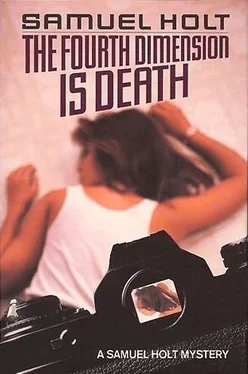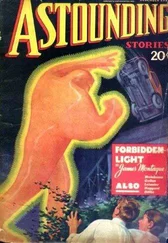Could it be she was embarrassed to be going behind Julie’s back this way? Could that be why she sounded so aggressive? In any event, she abruptly changed the subject, apparently at the instigation of Helen, because she suddenly said, “Him! Well, he’s disappeared!”
That was me she must be talking about. I leaned closer to the doorway, listening.
“Yes, the detectives are watching his house. Both his houses, you know he has one here, too. But he’s just gone, and nobody knows where he is. McCormack says I shouldn’t worry, but I think he’s up to something.”
McCormack was her attorney, or one of her attorneys. I remembered the name from those legal papers that had been dumped on me.
I didn’t much like Mrs. Wormley’s voice. (I couldn’t remember her first name; probably blocking it.) It was a hoarse voice, as though it had been used too much, and there were arrogant, impatient, imperial tones in it. Some spoiled brats remain spoiled brats all their lives, and from the sound of her voice I would guess Mrs. Wormley was one of those.
Now she was saying, “McCormack thinks it’s possible he’ll never even show up in court, just do it all through his lawyers, not even really contest anything.”
Don’t count on that, I thought.
“No, Helen, it would not. I’d hate it. Why, because I want to confront the man, that’s why. He thinks he’s above it all, doesn’t he, wouldn’t deign to even notice the likes of us. Well, I’m going to rub that man’s nose in it, you see if I don’t.”
I remembered Julie Kaplan’s suggestion that suing me had become this woman’s vicarious life, to take the place of her previous vicarious life through her son’s acting career. It seemed to me, now, listening to her, that Julie had been right but incomplete. Another part of Mrs. Wormley’s motivation was just good old-fashioned envy. Spite can make a wonderful fuel.
“Yes,” she was saying, “no more than two weeks. Then I’ll have to come back for the trial, of course, but God knows when that will be. Yes, I will. Be sure to water the plants, now. Yes, I will. Yes, I will. I have to go now, Helen, I’m supposed to call McCormack this morning, I was just out to get the paper. I have no idea, I haven’t really looked at it yet, but there hasn’t been anything for days now, because there isn’t any news, you know. When we find Sam Holt, though, and serve the rest of the papers on him, then there’ll be some news. I bet we make the TV again.”
Nasty old bitch, I thought, while Mrs. Wormley slowly wound down her conversation with Helen, repeating things, agreeing to things, adding one more reminder about watering the plants. Why does the nasty old bitch, I thought, have to live her life through me? Why doesn’t she devote herself to good works? Become a Gray Lady, join the Peace Corps, go down among the lepers. Maybe she’d catch something.
At last she ended that phone call, and I heard her immediately dial another one. “Mr. McCormack, please. It’s Laura Wormley.”
Laura; somehow the name seemed inappropriate. She should be a Hannah, or a Bertha. Of course, I still hadn’t seen her, but I visualized the kind of battleaxe who used to give W. C. Fields so much trouble. I was so happy with this image that I didn’t even want to know the truth.
“Mr. McCormack? Laura Wormley. Did they find him yet?”
Me again.
“Really?” Sounding very interested. “Right here in New York? Are they sure?”
I leaned almost through the doorway, listening.
But then, sounding disappointed, she said, “Oh, them . I know that kind of paper, they don’t know anything, they just make it all up.” And I leaned back again.
Then she said, “Do I have to? Well, yes, of course I want to flush him out. Well, it just seems all I do is go to your office and sign things, and nothing ever happens.” A long put-upon sigh; poor lady. “Well, if I have to, I will. But it takes forever to get way over there from here, I’ll be lucky to be back in time for lunch.” Another sigh; but then, in a steelier voice, she said, “You know I’m not losing interest, Mr. McCormack. I told you at the beginning, I’ll do whatever it takes. All right. I’ll be there as soon as I can.”
She cradled the phone, with an exasperated sniff, and I went back under the bed.
At last the door slammed shut behind her. Then she rattled the knob from outside, to be certain it was locked. And then there was silence.
I waited three or four minutes, lying there, to be sure she hadn’t forgotten something that would make her come abruptly back, and then finally, feeling stiff by now — I hadn’t been exercising or swimming my laps lately, and it was beginning to tell — I crawled out from under the bed for what I hoped was the last time.
And while I’d been under there, waiting, I’d had another thought, another way of looking at the Kim Peyser murder, induced by my own current experience. One of the questions I’d been asking myself about her murderer was: Why here? Why did he kill Kim Peyser in Dale Wormley’s apartment (and Julie Kaplan’s)? And the idea that had now come to me was: What if he were here first, as I had been here first when Mrs. Wormley arrived? What if she had surprised him, as Mrs. Wormley had almost surprised me? And what if, like me, he’d been here because he was searching for something? (Unlike me, he would probably have known what he was searching for.)
Let’s look at it from that angle. Let’s say the murderer killed Wormley in the first place because Wormley was some sort of threat to him. But with Wormley dead the threat still continued in some way, and the killer had to come here to look for it , whatever it was; the thing that continued the threat after Wormley was dead. And while he was here, Kim Peyser came in, and Kim Peyser knew him .
The story hung together this way, better than all the theories about Kim Peyser having been killed in error. In the first place, the error theory required him always to be behind her, not seeing her face; and that couldn’t be for very long. Now, looking at the layout of this apartment, the only scenario I could come up with that made that idea workable at all would be if the killer had been in the bedroom when Kim Peyser entered the apartment, that he already had the knife for some reason, and that when she came into the apartment the first thing she did was turn away from both bedroom and living room and enter the kitchen. That version seemed to me improbable, for a number of reasons.
So let’s say he’s here to search the place, not to kill anybody, and Kim Peyser walks in, surprising him. There was no sign of struggle before the killing, so she knew the guy. He gave her some reason or excuse for his being here, something that would seem plausible for the moment but would break down later; so she wasn’t suspicious right then, but he didn’t dare let her leave.
One of them, let’s say, suggested a cup of coffee. So they went into the kitchen together. He opened drawers, making a show of being unfamiliar with the kitchen, and when he found the knife he simply turned and used it.
The next question, the big question after that, is: Did he then go back to searching the apartment, with Kim Peyser dead in the kitchen, or did he leave, spooked by what had happened? And, in either case, did he find whatever it was he was looking for?
I was making a lot of assumptions here, but it seemed to me these assumptions had a feeling of coherence I hadn’t found up till now in all the various ways that had been tried of looking at these two murders. And they seemed to me to be coherent enough to make just one more assumption worth making: That it would probably pay me to search this apartment.
Читать дальше












